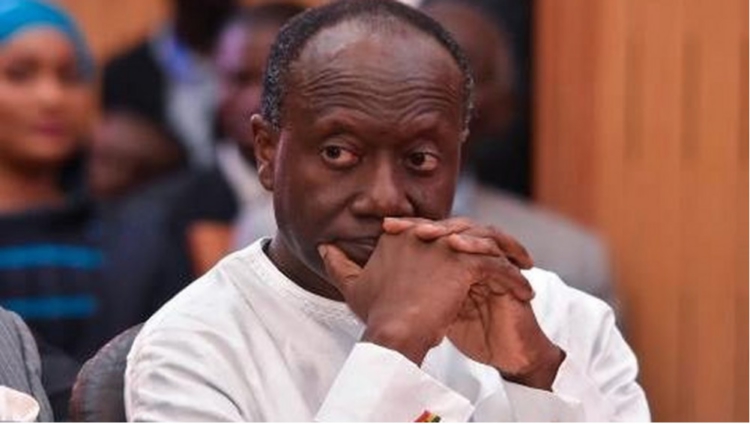What Agyapa has been set up to do is to swap the country’s future cash flows from mineral royalties for immediate cash. It is analogous to going to the bank and taking cash now in exchange for your salary for the next x periods.
These types of transactions have several hidden costs.
First, it disadvantages all existing lenders since the revenues that would otherwise have been available to service their debt have been now allocated to a particular party. This tends to undermine the credibility of the government, alienate traditional lenders and increase the cost of borrowing.
Second, it can trigger all kinds of legal challenges, especially as it is likely that some traditional lenders may have protected themselves by barring such arrangements.
Third, it is a nightmare for budgeting flexibility. Instead of the flexibility of allocating mineral royalties to higher priority areas, as determined by future events, the country has locked itself into using it in a particular way.
Fourth, following from the third, such an arrangement deprives future governments of the revenue that should be available to them during their tenure. It therefore ties their hands. Imagine the extreme case where the government of the day decides to monetize future VAT or payroll taxes!
Fifth, it is just a gimmick to park debts off the country’s balance sheet. Even though the country is borrowing, the accountants say they are not! But this does not fool anyone and the nation pays for it in the debt market.
Sixth, the transaction cost could be high unless the country uses its own staff from the Attorney-General and other financial institutions.
Given these costs, it is imperative for government to give as much information on this deal as possible.
In particular, government should name all transaction advisors and specify how much has been paid to them.
The Mineral Income Investment Fund has a 9-member Board, supported by a five-member Investment Advisory Committee who are all on government payroll. So the case for paying for transaction advisors must not only be made, but it must also be compelling. Then there is an Attorney-General Department, etc.
Further, what are government plans to use the cash that results from the monetization of the future royalties?
If there is no clear plan and the cash is to flow into the general funds to pay salaries or other unproductive activities then the case for monetizing is considerably weaker.
On the other hand, if the cash is to be used to invest in an identifiable project with clear potential for generating economic activity and cash flows then the case for rallying around it is stronger, in spite of the aforementioned costs.
Finally, I still do not understand why the country has not been able to pass the Public-Private Partnership (PPP) Bill notwithstanding that we are doing over $5B annually in such projects.
The PPP Bill was drafted about a decade ago but such projects are still being consummated under the 2011 policy, creating needless legal and regulatory uncertainty.
Da Yie!
****
Professor Stephen Kweku Asare is a D&D Fellow in Public Law and Justice at CDD-Ghana. A KPMG Professor in accounting at the Fisher School of Accounting, Professor Asare is better known in Ghana as a public intellectual and scholar-activist whose contributions and activism.
Latest Stories
-
Livestream: 3rd edition of JoyNews Impact Makers Awards underway
1 hour -
I’ll be a coward if I heed to threats to back off galamsey fight – Dr. Hanna Bissiw-Kotei
2 hours -
Forestry Commission patrol team ambushed by armed illegal miners in Jimira Forest Reserve
2 hours -
UniMAC-FOJAMS holds staff-student consultative meeting with The Multimedia Group
3 hours -
Ghana–China Business Summit 2025 concludes
3 hours -
Akufo-Addo pushes for 30% sovereign reserves in African banks
4 hours -
Asantehene bemoans non-completion of 18-year-old stalled KNUST Teaching Hospital
5 hours -
MTN marks World MSME Day 2025 with call for digital inclusion and sustainable growth
5 hours -
Kwasi Kwarteng appointed Spokesperson for Kennedy Agyapong campaign
5 hours -
Inclusive, consultative appointment process will curb political animosity – Senyo Hosi on Asiedu Nketia’s criticism of EC
5 hours -
Youth-led summit ignites bold call for reform at 2025 African Governance and Anti-corruption gathering
5 hours -
If Torkornoo is cited for contempt, she brought it upon herself – Lawyer
5 hours -
Victoria Bright urges truth and accountability following Asiedu Nketia’s criticism of EC
6 hours -
Razak Kojo Opoku rejects efforts to tie Bryan Acheampong to 2014 Alhaji Bature article
6 hours -
Herman Suede and The Therapist reunite for “One by One II”
6 hours

